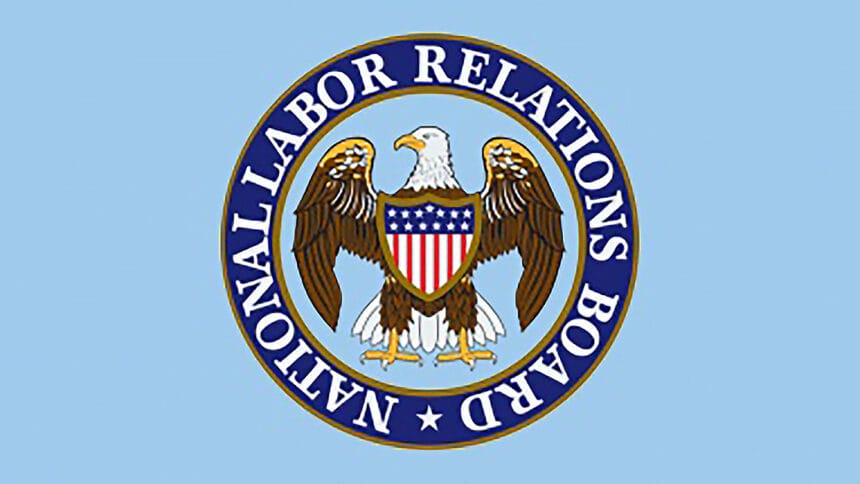
A raffle offering workers thousands of dollars in prizes will likely invalidate the results of a nursing home union election, thanks to a ruling by a panel of the National Labor Relations Board.
Heartwood Extended Health Care had asked the national board to reverse a regional decision, arguing that its plans for a 2022 employee raffle had been in place before nursing staff there petitioned to create a union. It was intended “to boost employee morale in light of challenges posed by the COVID-19 pandemic,” the Tacoma, WA, nursing home claimed in a request for review.
The regional board decided that the raffle — offering a laptop computer, several $100 gift cards and televisions — unlawfully influenced the outcome of the election based on its scope, size and timing. A three-member panel of the NLRB upheld that decision 2-1 in a Monday decision.
The union vote tally in November 2022 resulted in a 19-19 tie, leading to ballot challenges from both the nursing home employer and Service Employees International Union Local 775.
An NLRB regional director last summer overruled Heartwood’s challenge to seven ballots and sustained a union challenge to a ballot from a former employee. At issue with most of the questioned ballots was whether they came from full-time employees or if the newly hired submitters counted instead as invalid “contract” nurses.
That decision called for the election to be set aside if the revised vote wasn’t in favor of the union. The ruling this week didn’t tackle how the contract or temporary workers’ ballots should be counted, but let stand the late June order.
In his partial dissent, board member Marvin Kaplan said the earlier ruling was correct, given that Heartwood had included the disputed voters on its first two voter lists, “only asserting that they should be removed after the mail-ballot election had begun.”
An attorney representing the nursing home told McKnight’s Long-Term Care News Tuesday that facility staff had not formally unionized while awaiting the decision. Dan Swedlow, a labor and employment attorney in the Seattle office of Seyfarth Shaw, called the rule underpinning the raffle decision “unfortunate.”
“It deserves some additional scrutiny because it’s not reasonable,” he said. “In this case, it was pretty obvious the employer was behaving in good faith in an effort to boost morale related to being a nursing home worker during the pandemic. It was one of those ‘no good deed goes unpunished’ situations.”
Swedlow warned other providers to “be very careful” about any new or extraordinary activities to benefit employees if they have any inkling of potential union organizing.
Kaplan himself found the majority’s read of the Heartwood raffle as unlawfully influential to be an “overly broad interpretation of the law.” His sympathetic comments demonstrate just how challenging navigating ethics and morale can be for providers desperate to retain workers.
Kaplan noted that the raffle was held company-wide, across facilities and was open to employees not involved in the proposed bargaining unit, as well as those considering union representation.
“The Employer viewed the problems of employee retention, low employee morale, and low employee motivation as serious managerial concerns,” he wrote. “Yet, had the Employer sought to avoid a ‘granting of benefits’ objection, it presumably could not have legally decided to limit the raffle at the Tacoma facility to non-bargaining unit employees. Nor, presumably, could the Employer have satisfied the Act by holding the raffle only at the other two facilities and not at the Tacoma facility.”
The only solution, then, Kaplan noted, would have been to abandon the raffle or any other effort it might undertake to “substantively address its serious managerial concerns.”
“Here, an employer planned, before any representation petition was filed, to take steps to address a critical, company-wide personnel problem,” he wrote. “By denying review here, my colleagues are unreasonably telling employers that, once a representation petition is filed, they are precluded from using any non-discriminatory, companywide action involving benefits to address serious managerial concerns.”



